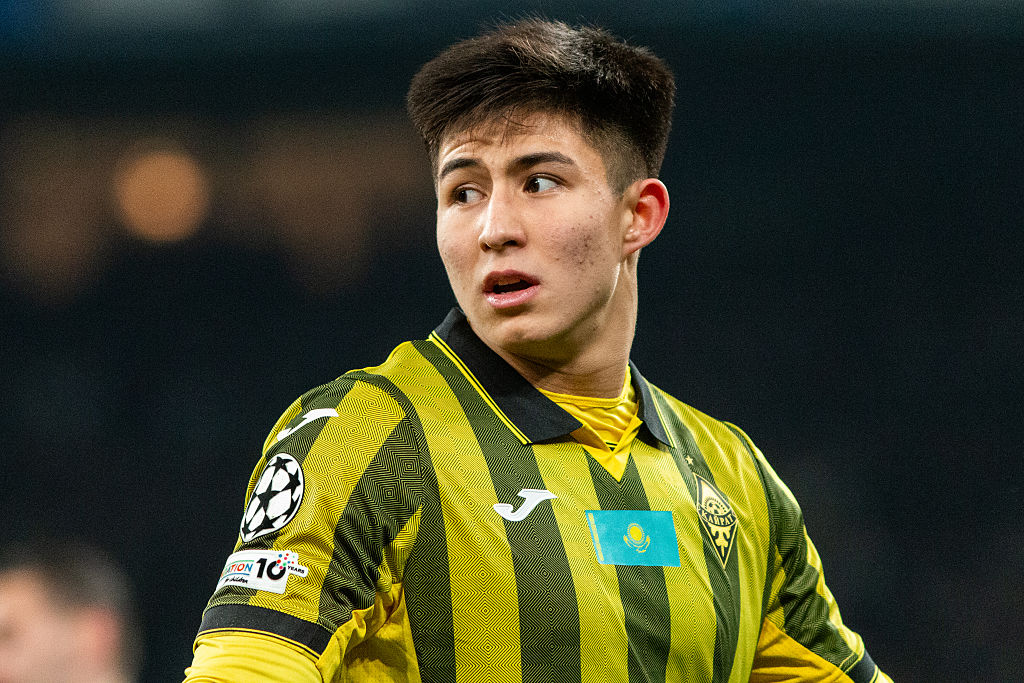Pat Nevin interview: “My nickname was ‘Weirdo’ for a long time. I was always thinking, ‘Oh, no I’m the normal one…”
Chelsea winger Pat Nevin saw himself as a student, music critic and activist before a footballer. During his 1980s heyday, Nevin was the game's great outsider, regularly appearing in the NME, his alternative diversions featuring knife attacks, The Proclaimers and Saddam Hussein’s secret police...
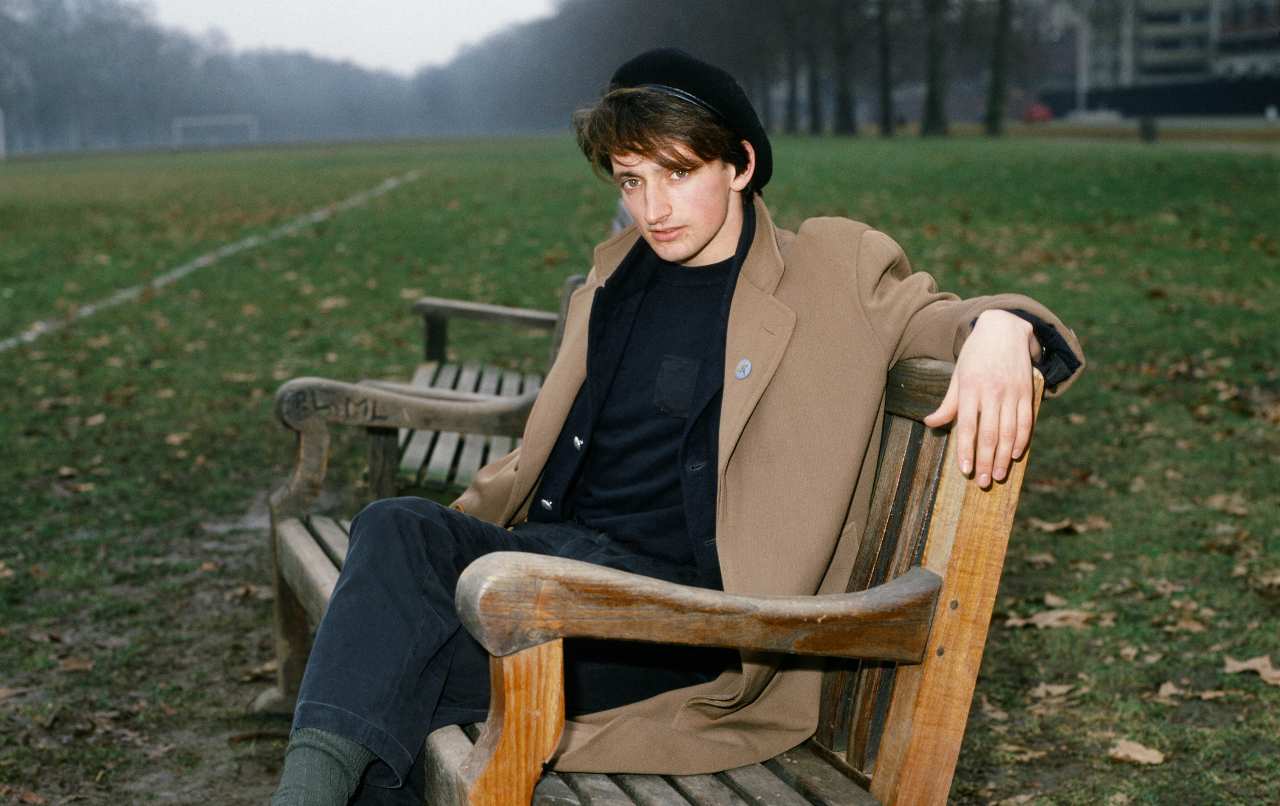
The best features, fun and footballing quizzes, straight to your inbox every week.
You are now subscribed
Your newsletter sign-up was successful
Want to add more newsletters?

Five times a week
FourFourTwo Daily
Fantastic football content straight to your inbox! From the latest transfer news, quizzes, videos, features and interviews with the biggest names in the game, plus lots more.

Once a week
...And it’s LIVE!
Sign up to our FREE live football newsletter, tracking all of the biggest games available to watch on the device of your choice. Never miss a kick-off!
Join the club
Get full access to premium articles, exclusive features and a growing list of member rewards.
This exclusive interview with Pat Nevin first appeared in the July 2021 issue of FourFourTwo. Subscribe now!
There was a time, back in the early ’80s, when footballers and the sport they played were widely seen as fantastically naff. If you were into music – the good, alternative kind – then a love of the game was an unlikely bedfellow.
Things would change later in the decade with the fanzine movement – whose typewriter-and-Tippex publications were frequently sold in independent record stores – Italia 90 and World In Motion. They then hit overdrive in the Britpop-drenched ’90s, but in Margaret Thatcher’s Britain 40 years ago, you tended to keep quiet even about watching Match of the Day.
The main problem was a lack of visible, like-minded souls on the pitch. Footballers had the worst taste in music – think Phil Collins, Lionel Richie or Luther Vandross. And not in an ironic way, either. Certainly, you never expected to find a footballer in the pages of the NME: that hallowed bastion of the weekly music papers, home to notoriously caustic articles and referential reviews that would apply deconstructivist theory to the latest Crispy Ambulance album.
So, when Chelsea’s newest signing – a young, Scottish winger who joined from Clyde for £95,000 in the summer of 1983 – was interviewed by the music journalist Adrian Thrills, it felt like a genuine moment.
Keep it quiet
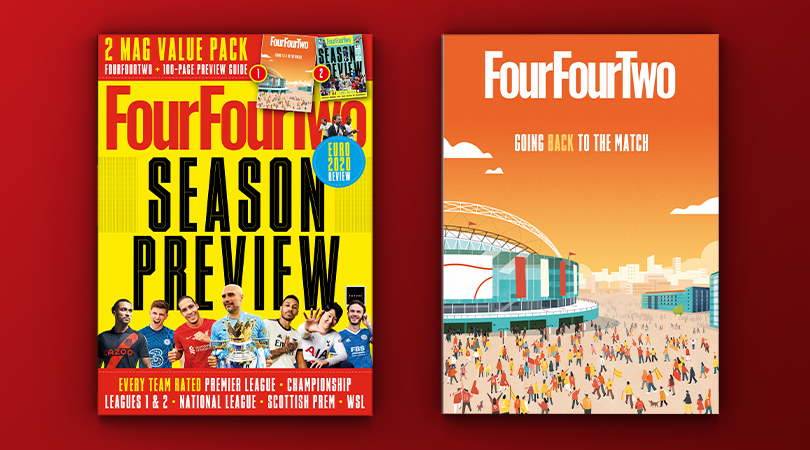
Chelsea had approached Pat Nevin one year earlier, but the Glaswegian politely declined. Instead, he was intent on finishing a degree, studying part-time while turning out for the Scottish Second Division side.
He couldn’t hold off in the end, however: Nevin was named the division’s player of the year and then invited to the 1982 European Under-18 Championship in Finland. Scotland won with their speedster voted player of the tournament. Word soon spread about his obvious talent – not that he did the talking.
The best features, fun and footballing quizzes, straight to your inbox every week.
“I’d kind of told nobody, including my own girlfriend,” Nevin admits to FourFourTwo now. “I wanted people to like me for who I was and not what I did. And that was a big part of it – what I did was not who I was.”
Nevin was never overly bothered about all the other stuff that went with playing. Press interviews were a particular bugbear, even if he enjoyed chatting with Thrills in the NME to such an extent the pair went on to share a flat. Dubbed “the first post-punk footballer”, Nevin namechecked his favourite bands (Joy Division, New Order, Cocteau Twins, Clock DVA, the Associates and The Smiths, among them), before touching on everything from the working-class Tory vote to nights out in his native Glasgow. Everything, that is, apart from football – although he readily admitted to being “humbled” by the dedication of Chelsea’s travelling away support.
The real eye-opener, though, was Nevin’s apparent intention to knock the game on the head and return to his studies. That, or seek out a career in journalism.
“As things stand, I’ve signed for two years and don’t intend to commit myself to longer yet,” he said. “When people ask me what I do for a living, I don’t say that I’m a footballer – it doesn’t come out right. I usually say I’m a student, which is technically true anyway.”
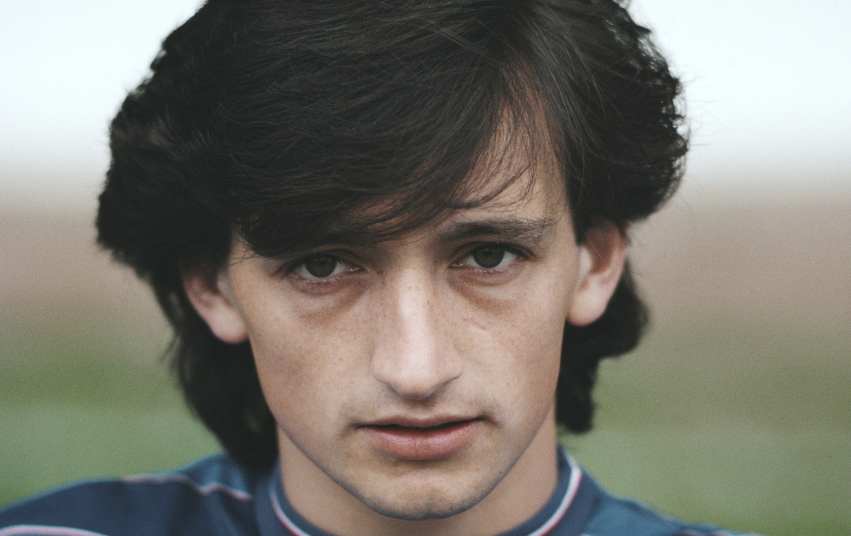
Nevin smiles at the memory now. “I used to love playing football, I really did,” he says. “The problem was that I didn’t particularly like the rest of it. There were attempts to fit in, but they were half-hearted. You were expected to fight to become a footballer, to think of nothing else. I thought, ‘No, there’s a life out there’. It was trying to get people to understand the dichotomy between being utterly dedicated to your craft, but knowing it’s kind of frivolous as well. And that doesn’t make you unprofessional.”
The Chelsea move proved an immediate success: Nevin won over supporters with his darting wing play, linking up with another new signing, Kerry Dixon, whose 28 league goals ensured promotion back to the top tier after a five-year absence.
Away from the pitch, the young Scot soon took to the capital’s culture and was out most nights at gigs, theatres and galleries.
It helped that he had arrived in London the same summer as fellow Glaswegian Charlie Nicholas: a very different proposition.
“I said, ‘The limelight’s all yours, Charlie!’” laughs Nevin. “He’s at champagne bars and dating Page 3 girls and whatever, and I’m at the Institute of Contemporary Art watching [Scottish post-punk indie crooner] Paul Haigh, and I’m really at home there.
“It’s funny – I absolutely got it right away that within the bubble of playing football at the weekend in front of thousands of people, nobody’s noticing you when you’re going to art galleries, or going to gigs, or seeing a film. It was two different lives. London’s brilliant for that, so it suited me fabulously.”
Then, as now, footballers had to be team players, usually underlined with well-worn military metaphors invoking trench warfare. It added to the naffness. Nevin never lacked team spirit or work ethic, nor was he ever deliberately aloof – but he wasn’t one for boozing sessions straight after training either.
“It’s not that I didn’t like footballers,” he insists. “How many of your workmates do you really hang about with? You don’t really, especially in football when you move about all the time. I’d live a normal life and then go and do this mad thing at the weekend.
“It’s this big thing, trying to tell people that there’s supposed to be this gang, this band of brothers – but if you look at it closely, it doesn’t add up. How long does a player stay at the same club: about three years? There’s always movement. But also the whole thing of ‘we’re in this together, I’ll fight for you’, all of that... but I want your job. You’re my best mate, but I want your job and I’m going to take it. That’s how viciously competitive it is.”
I proclaim you strange
This raincoat-wearing student type suddenly appearing in the dressing room fascinated Nevin’s Chelsea team-mates. It took a while for them to fully trust him.
“My nickname was ‘Weirdo’ for quite a long time,” he laughs. “I was always thinking, ‘Oh, no I’m the normal one – you’re the weirdos, you just don’t get it’! Looking back, I was probably right: there wasn’t one normal person there...”
He feels a bit ashamed about it now, but at the time Nevin felt some disdain when it came to music tastes. “Yeah, for a wee while I looked at them and thought, ‘My god, look at all the rubbish they’re listening to, what they’re reading, what they’re wearing’.
“After a while you mature and appreciate other people’s viewpoints. They’d given up everything to play football – they’d taken such a massive chance and I hadn’t. I could go off and do something else because there was no pressure for me, but there was a lot for them. They were in this bubble of football from a very early age, and that was all they wanted or all they knew.”
Nevin enjoyed his team-mates’ company, the camaraderie and Pythonesque sense of humour. “They had real street smarts,” he remembers. “There was a long period when journalists were always taking the mickey out of ‘thick’ players. I had more in common with the journalists because we could talk about music or books, but I knew they could never survive in the dressing room. You need a certain type of street attitude to cope with that environment. Footballers aren’t thick, they’re really not.”
Things would sometimes get a little lively, especially if ‘Weirdo’ tried to wrestle control of the team bus stereo on the journey back from a game. Usually, his cassettes would be unceremoniously yanked out of the tape deck and lobbed back in his general direction within 20 seconds.
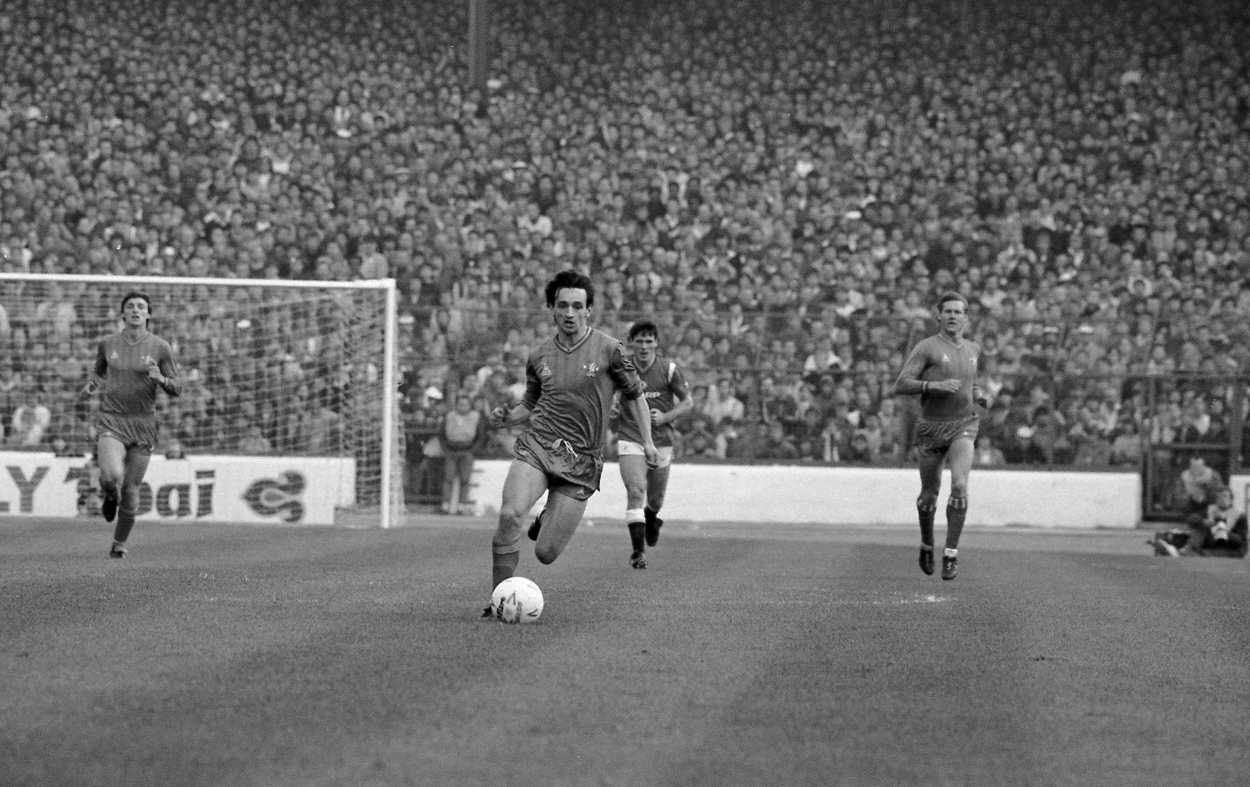
“I remember there was a new band, they’d released a couple of singles and I thought, ‘I love this, everyone must love this’,” recalls Nevin. “I put this band on, telling everyone, ‘You’ll love this, they’re Scottish.’ But they fell about laughing. It was The Proclaimers.
“I couldn’t listen to what they were listening to because it often gave me a headache, so I’d sit there with my headphones on, listening to [notorious German industrial noiseniks] Einsturzende Neubauten or something and think, ‘This doesn’t give me a headache’!”
Undeterred, Nevin upped his game, creating carefully curated video compilations featuring clips from late-night music programmes. “I’d put two or three songs on that I knew they could put up with – this sort of tiny crossover area where we met, where I was getting fed up with a band that they were just getting into, like Simple Minds or something. Then I started adding cartoons and this sort of strange stuff to the tapes, kind of mash-up things, and it was all so I didn’t have to listen to their music.”
Blues manager John Hollins once burst into Nevin’s hotel room after hearing screeching feedback coming from the other side of the door. The wideman was listening to the new Jesus and Mary Chain single Upside Down, but a panicked Hollins searched around the Scot’s room, adamant that one of the hotel’s appliances must be on the blink.
“Holly was really funny,” chuckles Nevin. “He’d ask me about the bands I liked, and when I told him the names he’d always say, ‘Prefab Sprout?! You’ve just made that one up, haven’t you?’”
His relationship with Ken Bates was slightly more tricky. The famously gruff Chelsea chairman, who bought the club for £1 in 1982, had little time for anything progressive. A skinny teenage Glaswegian with gel in his hair sporting a Joy Division badge on his trench coat was always going to be a red rag.
True to form, a baffled Bates would shake his head and tell his young winger that he didn’t have a clue what he was on about. However, as the pair understood each other better, and as Nevin crucially continued to deliver on the pitch, they found themselves increasingly getting on.
“We had nothing in common, but ended up liking each other because of it,” explains the Scot. “He had no real power over me and didn’t try to push me into anything. Everyone was frightened of him, but he just didn’t get where my strength of character came from, that this boy could say ‘no’ to him.”
Discussing a new contract once, chairman Bates warned his charge that he may never play again. Nevin shrugged. “I said, ‘And your point is? Why is that important? I will play again, maybe not professionally, but I don’t care.’ He looked at me and said, ‘You mean that, don’t you?’ It wasn’t an act, it wasn’t fake. If I’d have been faking it, he’d have seen straight through it.”
Knife attacks and secret police
Nevin’s readiness to speak out about social issues of the day – notably, the entrenched South African system of apartheid – didn’t go down enormously well with the less-enlightened section of Chelsea’s broad fanbase.
Although a minority, they were still vocal enough to cause the club problems. The far-right National Front would regularly target Stamford Bridge as a recruitment ground for their youth wing, leafleting supporters while they made their way to the stadium and often finding willing conscripts among fringe hooligan gangs.
Chelsea’s reputation wasn’t helped by Bates’ blunt views on everything from the influence of foreign players to keeping unruly fans in check with electric fencing.
“I was just making it clear that these things that were being sung, shouted or whatever at games weren’t acceptable,” continues Nevin. “You don’t have 40,000 people singing songs using the N-word these days. It’s taken decades and decades to come, but it’s good that we’ve come this far. On one very specific occasion, I refused to talk about anything else after a match, because it was one when our player [fellow wideman Paul Canoville] had been involved and I was like, ‘OK, that’s it, I’m not having this any more.’
“None of it was me attempting to organise anything – it was how I felt. I’d been brought up with that attitude. I was quite involved with the anti-apartheid movement at school and as a student, so it would have been odd for me not to get involved. But you’ve got to be careful – there can be misunderstandings and consequences.”
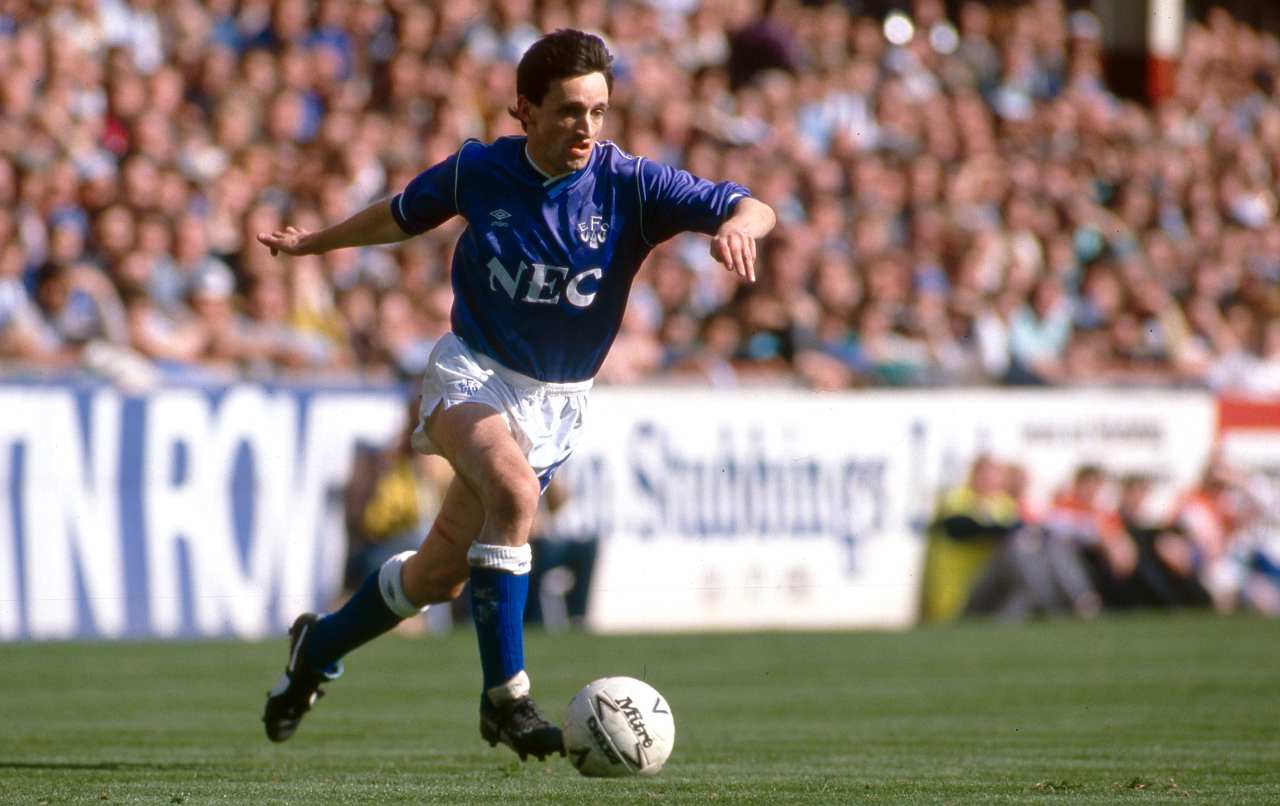
Bates called in his midfielder to discuss the situation, asking him to tone down some of the ‘political’ stuff in the press. Shut up and dribble, in other words.
“To be fair to him, he was trying to protect me,” says Nevin. “He knew the dangers, he knew all about the far right at the time, and he knew the possibility of some supporters turning on me. What he didn’t understand is that I didn’t see it as a danger. I went, ‘So what? As long as I play good football, that’s all that matters. If they bring their politics to my place of work, then I’m going to bring my politics and give it back, with interest.’ But he would say, ‘What if you met somebody with a knife on them?’ And he was right, actually – that did happen...”
A rival fan – reportedly a Spurs supporter – once brandished a weapon after confronting Nevin on his Tube journey home after playing for Chelsea. The winger, his boots still tucked under one arm, quickly pushed his would-be assailant away before jumping off the train at the next stop.
Happily, though, the Scot’s relationship with Chelsea fans in general was never anything less than positive. Occasionally he would even bump into some at gigs, and many of them remain friends to this day.
“It was all lower profile than it is now,” he reflects. “I never got asked for an autograph at a gig. People who were into that sort of thing were cool, so it was a brilliant getaway and escape from everything. The manager was great and knew all about it – it wasn’t like I was going out nightclubbing until four in the morning or whatever.”
Nevin would frequently wander off alone while on international duty, or during one of Chelsea’s then-rare excursions overseas. When the Blues travelled to play a friendly in Iraq (another of Bates’ terrific ideas), the Scot merrily embarked on a tour of Baghdad’s backstreets with £30 expenses in his jeans, tailed by Saddam Hussein’s secret police.
Me and Brian McClair both came from a student background and were more likely to be talking about Steve Biko than Steve Archibald
Nevin on Scotland team-mate McClair
There were a few players who shared his curious mindset and love of alternative music, though, most notably international team-mate Brian McClair. The two had met when they were 17 and part of a Scottish youth squad.
“I was sitting on my bed reading the NME when this guy walked in with a copy of Sounds,” reveals Nevin.
“I went, ‘Interesting!’ He was studying maths at Glasgow University – we both came from a student background and were more likely to be talking about Steve Biko than Steve Archibald. It wasn’t that we thought we were better than anyone, we just came from a different kind of culture. It was this weird kind of mix; we felt comfortable in ourselves, so it wasn’t a lonely existence.”
Nevin picked up two player of the season awards over five years at Stamford Bridge, but when the team were relegated in 1988 after losing a play-off final to Middlesbrough (the result of a Football League restructure), he moved on to Everton and new adventures. By then, there was wider change in the air and the idea of a footballer reading a book, or a book reader watching football, wasn’t quite so abnormal.
After four mixed seasons at Goodison Park, Nevin’s career began to wind down. Another five years as a Tranmere player brought with them three consecutive Division One play-off semi-final defeats from 1993, before shorter stints at Kilmarnock and Motherwell led to his retirement in 2000 aged 37. He is now a regular co-commentator and pundit for BBC Sport and, before the pandemic, travelled the country playing DJ sets at club nights.
“It’s complicated but, from the age of 15, I watched other people and football became who they were,” explains Nevin. “I’d always thought, ‘What happens when it’s not there any more?’ You’re bereft and you’re lost. I never sat myself down and thought, ‘Right, you’re a footballer’. It was always about wondering what I would do next. All the way through [my career] I was always writing, I was the chair of the PFA, I was always doing something else… If you’re an insider you don’t think twice about it, but as an outsider you constantly think that this is all very strange.”
Would Nevin still feel like an outsider if he played in today’s game?
“I’d probably just as deliberately be outside, because I’d want to keep lives separate and I wouldn’t want that job to define me,” says the 57-year-old. “I have a despair and dislike of celebrity life, and I’ve always had that. If I had it back then, what do you think I’d feel about it now?!”
Pat Nevin’s new book The Accidental Footballer, published by Monoray, is available now – visit octopusbooks.co.uk
Subscribe to FourFourTwo today and save over a third on standard price.
NOW READ
RETRO How the 1990s saved English football
FEATURE Gianfranco Zola: How the Chelsea legend weaved his magic as English football watched in awe
QUIZ Can you name every Premier League club's all-time appearance makers?
Matt Barker is a freelance journalist and regular feature contributor to FourFourTwo magazine. He specialises in Serie A and Italian football, has interviewed players including Michael Owen and Gianluigi Buffon, as well as covering stories such as Silvio Berlusconi's purchase of AC Milan, and Ronaldo's injury-plagued time at Inter Milan at the turn of the century.
 Join The Club
Join The Club










